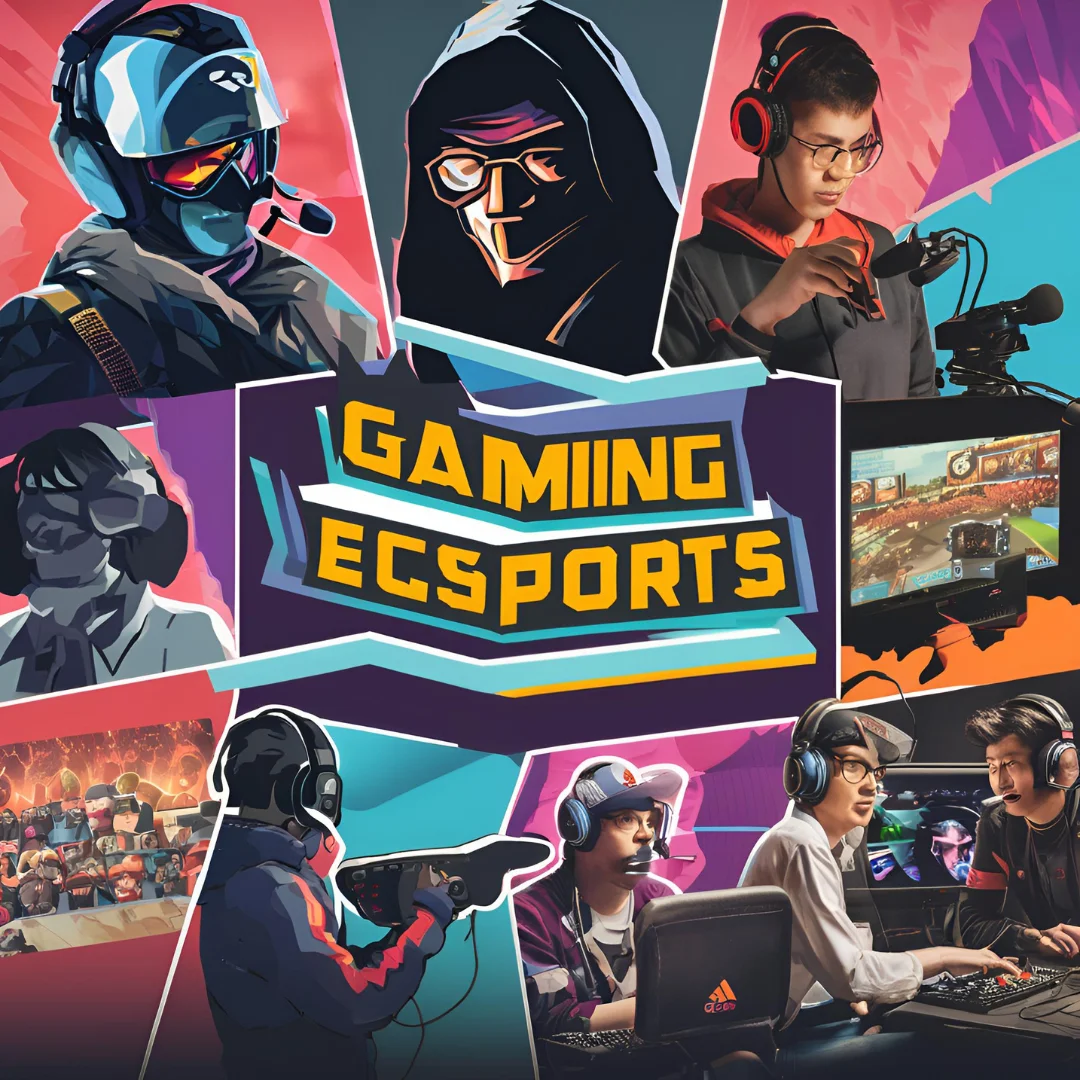Esports and gaming have become powerful cultural and economic forces that captivate millions of people around the globe. Gaming started off as a niche pastime but has since expanded into a multibillion dollar industry, with esports competitions attracting crowds that equal those of regular sporting events. This blog examines the development of video games and esports, their effects on culture and the economy, the emergence of professional players, and the trends that will shape this ever-changing field in the future.
The Evolution of Gaming: From Arcades to Global Phenomenon
The Early Days: Arcades and Home Consoles
The origins of gaming can be found in the early 1970s, when arcade titles like "Space Invaders" and "Pong" first appeared. Video games gained popularity as a form of entertainment and attracted a devoted fan base thanks to these straightforward yet engrossing titles that set the foundation for the gaming business. Famous games like "Pac-Man" and "Donkey Kong" also became popular during the arcade era, setting cultural benchmarks and opening doors for the gaming industry.
With the release of home consoles in the late 1970s and early 1980s, millions of people were able to enjoy gaming in their living rooms. One of the first popular home consoles was the Atari 2600, which came out in 1977 and offered a wide selection of games for playing on a television. A major turning point was the transition from arcades to home gaming, which increased accessibility and expanded the attractiveness of gaming.
The Rise of PC Gaming and Online Multiplayer
Significant technological developments in the 1990s contributed to the growth of PC gaming. PC games provided richer and more immersive experiences because to stronger hardware and better graphical capabilities. Games with titles like "Doom," "Myst," and "Warcraft" broke through into the canon of popular culture, showcasing the limits of game design, gameplay, and storytelling.
The introduction of internet multiplayer gaming during this time was one of the most revolutionary breakthroughs. Online multiplayer games such as "Quake" and "StarCraft" pioneered the idea of playing against and with other people, fostering new kinds of community and rivalry. Thanks to this innovation, players could now compete against people all over the world, which set the stage for esports' future expansion.
The Modern Era: Gaming as Mainstream Entertainment
Nowadays, a large variety of gaming genres, platforms, and experiences make gaming a popular kind of entertainment for a broad audience. Mobile games like "Angry Birds," "Candy Crush," and "Pokémon GO" are played by millions of people worldwide, demonstrating how accessible gaming has become due to the widespread use of smartphones.
With significant releases on systems like the PlayStation, Xbox, and Nintendo Switch, console gaming is still quite popular. Well-known brands like "The Legend of Zelda," "Call of Duty," and "FIFA" draw devoted fan bases and bring in a sizable sum of money. Additionally, it is now simpler for developers to connect with players and for consumers to access a huge library of games thanks to the growth of digital distribution systems like Steam and the Epic Games Store.
The Rise of Esports: From Hobby to Professional Sport
Defining Esports
Electronic sports, or esports for short, are organized competitive gaming events where teams or individuals compete in video games for awards and recognition. The professional and competitive aspect of the events—which frequently include organized leagues, tournaments, and significant prize pools—distinguishes esports from recreational gaming. First-person shooters (FPS), real-time strategy (RTS), multiplayer online battle arenas (MOBAs), and fighting games are just a few of the many genres that are included in esports.
The Growth of Esports Tournaments and Events
The first structured esports competitions appeared in the late 1990s and early 2000s. Early tournaments revolved around games like "StarCraft," "Counter-Strike," and "Quake," which drew in both expert players and fervent spectators. One of the first significant international esports competitions, the World Cyber Games (WCG) was established in 2000 and helped pave the way for the spread of competitive gaming throughout the world.
Esports became more widely known and accessible as streaming technology and internet speeds increased. Viewership skyrocketed as a result of fans being able to watch live broadcasts of tournaments and events on platforms like Twitch and YouTube Gaming. Since then, big esports games like "League of Legends," "Dota 2," and "Overwatch" have solidified their positions as mainstays of the industry. Multi-million dollar prize pools and millions of spectators attend tournaments like The International and the League of Legends World Championship.
The Professionalization of Esports
The professionalization of the esports business has resulted from the players, teams, and organizations implementing structures akin to those of traditional sports. Professional esports athletes frequently sign deals with organizations, are paid, and have access to support personnel, training facilities, and coaches. In addition to selling items and accepting sponsorships and endorsements, teams and players can make money this way.
Like professional sports clubs, esports organizations run teams in several games, handle player contracts, and bargain with sponsors and broadcasters. Esports leagues that offer regular seasons, playoffs, and organized competition have also grown in popularity in the business. Examples of these leagues are the League of Legends Championship Series (LCS) and the Overwatch League.
Conclusion
From specialized pastimes to popular culture, gaming and esports have transformed entertainment and opened up new avenues for both the arts and business. Gaming and esports will continue to be at the forefront of innovation and cultural expression as long as technology advances and the business expands. Millions of individuals worldwide are a part of this vibrant and dynamic community, enjoying the thrill of competition and the joy of gaming as players, fans, or content creators.
With new platforms, experiences, and technologies coming soon, gaming and esports have a bright future. The industry will present even more chances for interaction, creativity, and connection as it grows and diversifies. Gaming and esports offer countless opportunities for amusement and personal development, whether one chooses to compete at the top levels, explore fantasy realms, or just enjoy a casual game with friends.




